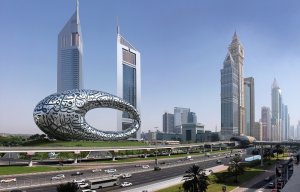
AZL addresses use of composites in construction
The National Composites Centre (NCC), in conjunction with the University of Southampton, Solent LEP and partners, is investigating the need for a centre to research and develop the use of advanced materials in the manufacture of large structures for marine, oil and gas and construction sectors. Minister for Portsmouth, Michael Fallon MP, who commissioned the plan to foster growth in these industries, believes there is a national need for a research centre in the UK, where, according to the recent studies, there is a capability gap.

30th May 2014
Innovation in Textiles
|
Bristol
Industry Contributors are wanted to scope the demand for a UK based large composites structures centre as part of a study for the Department of Business, Innovation and Skills (BIS).
The National Composites Centre (NCC), in conjunction with the University of Southampton, Solent LEP and partners, is investigating the need for a centre to research and develop the use of advanced materials in the manufacture of large structures needed by sectors such as marine, oil and gas and construction.

Peter Chivers, NCC Chief Executive, commented: “We will focus on whether there are specific issues around test facilities for large composite structures and knowledge transfer requirements for training, re-skilling and up-skilling people transferring from other disciplines to advanced composites applications.”
“We are looking for involvement from companies who wish to look at product and process development, optimisation, and validation. We need industry input to establish the demand and help specify the solution.”
The plan to foster growth in the marine and maritime industry in the Solent was commissioned by Michael Fallon MP, following the decision by BAE Systems to end shipbuilding operations in Portsmouth.

Transforming Solent was produced by Rear Admiral Rob Stevens CB and suggested that the feasibility of establishing a national Large Structures Composite Centre in that region should be investigated in partnership with local Universities including Southampton and regulators.
The draft Solent LEP Growth Plan published in January 2014 highlighted as one of its key proposals the creation of such a centre in the Solent Region aimed largely at the marine and renewables sectors.
Minister for Portsmouth, Michael Fallon MP said: “In my role as Minister for Portsmouth, I take a close interest in economic opportunities across the whole Solent area. I am working closely with local and national stakeholders to identify local growth opportunities which fit into the wider national interest to the benefit of all.”
Mr Fallon established the Solent Maritime Forum last November to identify what further steps need to be taken to secure sustainable growth in the marine and maritime sectors locally.

One of the key opportunities which the Solent Maritime Forum has identified is the national need for a 'Large Structures Composites Centre' (NLSCC), the local MP explained. “The report argues that such a Centre would allow companies to develop advanced manufacturing techniques for large structures across the whole composites industry.”
The Composites Leadership Forum (CLF) representing composites manufacturing companies across the full spectrum of the UK’s manufacturing sectors is currently generating a new UK Composites Strategy.
One of the findings that have emerged from this work that will be published later this year is a gap in UK capability to meet the potential demand for development of large composite structures from the marine, oil and gas, construction, renewable energy and rail sectors among others.
Alison Starr, Chair of CLF, commented: “There are no facilities of a scale that could be utilised for research and technology development of large structures. Whilst the CLF work has identified potential customers of such a facility, further work needs to be done on identifying a comprehensive set of potential future users in order to size the UK demand, analyse the detailed capability they require, and to establish if the business model for such a centre is viable.”

Business intelligence for the fibre, textiles and apparel industries: technologies, innovations, markets, investments, trade policy, sourcing, strategy...
Find out more